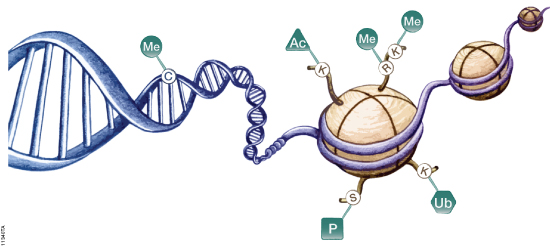 Epigenetics is the study of heritable changes in gene expression arising from chromosomal changes that are not caused by alterations in DNA sequence. It seems that almost daily, this field of study is revealing more and more about the ways in which genes are turned on or off–governing cell fate and regulating response to environmental factors such as stress or toxin exposure. In recent years there have been numerous papers implicating epigenetic mechanisms in the control of biological events as varied as fat burning in response to exercise, cancer progression, and control of memory and other neurological processes.
Epigenetics is the study of heritable changes in gene expression arising from chromosomal changes that are not caused by alterations in DNA sequence. It seems that almost daily, this field of study is revealing more and more about the ways in which genes are turned on or off–governing cell fate and regulating response to environmental factors such as stress or toxin exposure. In recent years there have been numerous papers implicating epigenetic mechanisms in the control of biological events as varied as fat burning in response to exercise, cancer progression, and control of memory and other neurological processes.
Histone modification by acetylation is one of the most well-studied epigenetic mechanisms. A quick literature search shows that more than 60 papers discussing some aspect of histone acetylation/deacetylation have already been published in 2014. In chromatin, DNA is tightly wrapped around histones. Acetylation of lysine residues on the histone tail by histone acetylases (HATs) neutralizes the positive charge on the histone molecule, decreasing its ability to bind the DNA backbone, and increasing expression by allowing transcription factors to access the DNA. On the other hand, histone deacetlyases (HDACs) remove these acetyl groups, causing tighter binding to DNA and decreasing gene expression. Continue reading “Histone Deacetylase Activity in Health and Disease”
